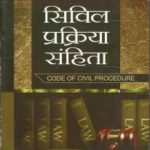अपराधिक मामलों का स्थानान्तरण
समस्या-
गोरखपुर, उत्तर प्रदेश से अंबुज ने पूछा है-
क्या धारा 494, 495 भारतीय दंड संहिता के अंतर्गत किसी महिला के विरुद्ध चल रहे किसी अपराधिक मुकदमे को अन्य नगर में स्थानान्तरित करवाया जा सकता है?
समाधान-
 आप का मामला एक अपराधिक मामले का एक न्यायालय से दूसरे न्यायालय को अंतरण का है। इस के लिए धारा 406, 407 व 408 दंड प्रक्रिया संहिता में उपबंध किए गए हैं। जिस न्यायालय में आप का मामला चल रहा है और जहाँ आप स्थानान्तरित करवाना चाहते हैं। यदि दोनों न्यायालय एक ही सेशन न्यायालय के अधीन हैं तो आवेदन धारा 408 में सेशन न्यायालय को प्रस्तुत किया जाएगा। यदि वे अलग अलग सेशन न्यायालय के अधीन हैं लेकिन एक ही उच्च न्यायालय के अधीन हैं तो आवेदन उच्च न्यायालय को किया जाएगा। यदि दोनों न्यायालय अलग अलग उच्च न्यायालयों के अधीन हैं तो फिर आप को यह आवेदन सर्वोच्च न्यायालय में प्रस्तुत करना होगा।
आप का मामला एक अपराधिक मामले का एक न्यायालय से दूसरे न्यायालय को अंतरण का है। इस के लिए धारा 406, 407 व 408 दंड प्रक्रिया संहिता में उपबंध किए गए हैं। जिस न्यायालय में आप का मामला चल रहा है और जहाँ आप स्थानान्तरित करवाना चाहते हैं। यदि दोनों न्यायालय एक ही सेशन न्यायालय के अधीन हैं तो आवेदन धारा 408 में सेशन न्यायालय को प्रस्तुत किया जाएगा। यदि वे अलग अलग सेशन न्यायालय के अधीन हैं लेकिन एक ही उच्च न्यायालय के अधीन हैं तो आवेदन उच्च न्यायालय को किया जाएगा। यदि दोनों न्यायालय अलग अलग उच्च न्यायालयों के अधीन हैं तो फिर आप को यह आवेदन सर्वोच्च न्यायालय में प्रस्तुत करना होगा।
कोई भी मामला उस न्यायालय में संस्थित होता है जिसे उस मामले में क्षेत्राधिकार हो। उसे किसी अन्य न्यायालय को तभी स्थानान्तरित किया जा सकता है जब कि उस न्यायालय में किसी प्रकार से उचित न्याय न मिलने की संभावना उत्पन्न हो गई हो या उस न्यायालय में पक्षपात किया जा रहा हो, या फिर पक्षकारों और साक्षियों के लिए स्थानान्तरण साधारणतः सुविधाप्रद हो अथवा न्याय के उद्देश्यों के लिए समीचीन हो। यदि आप के उक्त मामले में आप ये तथ्य साबित कर सकते हों तो मुकदमे का स्थानान्तरण किया जा सकता है।
दंड प्रक्रिया संहिता का अध्याय 31 ‘अपराधिक मामलों का अन्तरण’ निम्न प्रकार है-
Chapter 31 – Transfer Of Criminal Cases
Section 406 – Power of Supreme Court to transfer cases and appeals
- Whenever it is made to appear to the Supreme Court that an order under this section is expedient for the ends of justice, it may direct that any particular case or appeal be transferred from one High Court to another High Court or from a Criminal Court subordinate to one High Court to another Criminal Court of equal or superior jurisdiction subordinate to another High Court.
- The Supreme Court may act under this section only on the application of the Attorney-General of India or of a partly interested, and every such application shall be made by motion, which shall, except when the applicant is the Attorney-General of India or the Advocate-General of the State, be supported by affidavit or affirmation.
- Where any application for the exercise of the powers conferred by this section is dismissed, the Supreme Court may, if it is of opinion that the application was frivolous or vexatious, order the applicant to pay by way of compensation to any person who has opposed the application such sum not exceeding one thousand rupees as it may consider appropriate in the circumstances of the case.
Section 407 – Power of High Court to transfer cases and appeals
- Whenever it is made to appear to the High Court-
- that a fair and impartial inquiry or trial cannot be had in any Criminal Court subordinate thereto, or
- that some question of law of unusual difficulty is likely to arise; or
- that an order under this section is required by any provision of this Code, or will tend to the general convenience of the parties or witnesses, or is expedient for the ends of justice,
it may order-- that any offence be inquired into or tried by any Court not qualified under sections 177 to 185 (both inclusive), but in other respects competent to inquire into or try such offence;
- that any particular case, or appeal, or class of cases or appeals, be transferred from a criminal Court subordinate to its authority to any other such Criminal Court of equal or superior jurisdiction;
- that any particular case be committed for trial of to a Court of Session; or
- that any particular case or appeal be transferred to and tried before itself.
- The High Court may act either on the report of the lower Court, or on the application of a party interested, or on its own initiative:Provided that no application shall lie to the High Court for transferring a case from one criminal Court to another criminal Court in the same sessions division, unless an application for such transfer has been made to the Sessions Judge and rejected by him.
- Every application for an order under Sub-Section (1) shall be made by motion, which shall, except when the applicant is the Advocate-General of the State, be supported by affidavit or affirmation.
- When such application is made by an accused person, the High Court may direct him to execute a bond, with or without sureties, for the payment of any compensation which the High Court may award under Sub-Section (7).
- Every accused person making such application shall give to the Public Prosecutor notice in writing of the application, together with a copy of the grounds on which it is made; and no order shall be made on the merits of the application unless at least-twenty-four hours have elapsed between the giving of such notice and the hearing of the application.
- Where the application is for the transfer of a case of appeal from any subordinate Court, the High Court may, if it is satisfied that it is necessary so to do in the interests of justice, order that, pending the disposal of the application, the proceedings in the subordinate Court shall be stayed, on such terms as the High Court may think fit to impose:Provided that such stay shall not affect the subordinate Court’s power of remand under section 309.
- Where an application for an order under Sub-Section (1) is dismissed, the High Court may, if it is of opinion that the application was frivolous or vexatious, order the applicant to pay by way of compensation to any person who has opposed the application such sum not exceeding one thousand rupees as it may consider proper in the circumstances of the case.
- When the High Court orders under Sub-Section (1) that a case be transferred from any Court for trial before itself, it shall observe in such trial the same procedure which that Court would have observed if the case had not been so transferred.
- Nothing in this section shall be deemed to affect any order of Government under section 197.
Section 408 – Power of Sessions Judge to transfer cases and appeals
- Whenever it is made to appear to a Sessions Judge that an order under this Sub-Section is expedient for the ends of justice, he may order that any particular case be transferred from one Criminal Court to another Criminal Court in his sessions division.
- The Sessions Judge may act either on the report of the lower Court, or on the application of a party interested or on his own initiative.
- The provisions of Sub-Sections (3), (4), (5), (6), (7),and (9) of section 407 shall apply in relation to an application to the Sessions Judge for an order under Sub-Section (1) as they apply in relation to an application to the High Court for an order under Sub-Section (1) of section 407, except that Sub-Section (7) of that section shall so apply as if for the words “one thousand” rupees occurring therein, the words “two hundred and fifty rupees” were substituted.
Section 409 – Withdrawal of cases and appeals by Sessions Judges
- A Sessions Judge may withdraw any case or appeal from, or recall any case or appeal which he has made over to, any Assistant Sessions Judge or Chief Judicial Magistrate subordinate to him.
- At any time before the trial of the case or the hearing of the appeal has commenced before the Additional Sessions Judge, as Sessions Judge may recall any case or appeal which he has made over to any Additional Sessions Judge.
- Where a Sessions Judge withdraws or recalls a case or appeal under Sub-Section(1) or Sub-Section (2) he may either try the case in his own Court or hear the appeal himself, or make it over in accordance with the provisions of this Code to another Court for trial or hearing, as the case may be.
Section 410 – Withdrawal of cases by Judicial Magistrates
- Any Chief Judicial Magistrate may withdraw any case from, or recall any case which he has made over to, any Magistrate subordinate to him, and may inquire into or try such case himself, or refer it for inquiry or trial to any other such Magistrate competent to inquire into or try the same.
- Any Judicial Magistrate may recall any case made over by him under Sub-Section (2) of section 192 to any other Magistrate and may require into or try such cases himself.
Section 411 – Making over or withdrawal of cases by Executive Magistrates
Any District Magistrate or Sub-divisional Magistrate may-
- make over, for disposal, any proceeding which has been started before him, to any Magistrate subordinate to him;
- withdraw any case from, or recall any case which he has made over to, any Magistrate subordinate to him, and dispose of such proceeding himself or refer it for disposal to any other Magistrate.
Section 412 – Reasons to be recorded
A Sessions Judge or Magistrate making an order under section 408, section 409, section 410 or section 411 shall record his reasons for making it.











गुरुदेव जी, आपने काफी अच्छी जानकारी दी है. यदि “दंड प्रक्रिया संहिता का अध्याय 31 ‘अपराधिक मामलों का अन्तरण” के नीचे दी जानकारी का अनुवाद भी हिन्दी उपलब्ध होता तब काफी जानकारी मिलने से जागरूकता आती.